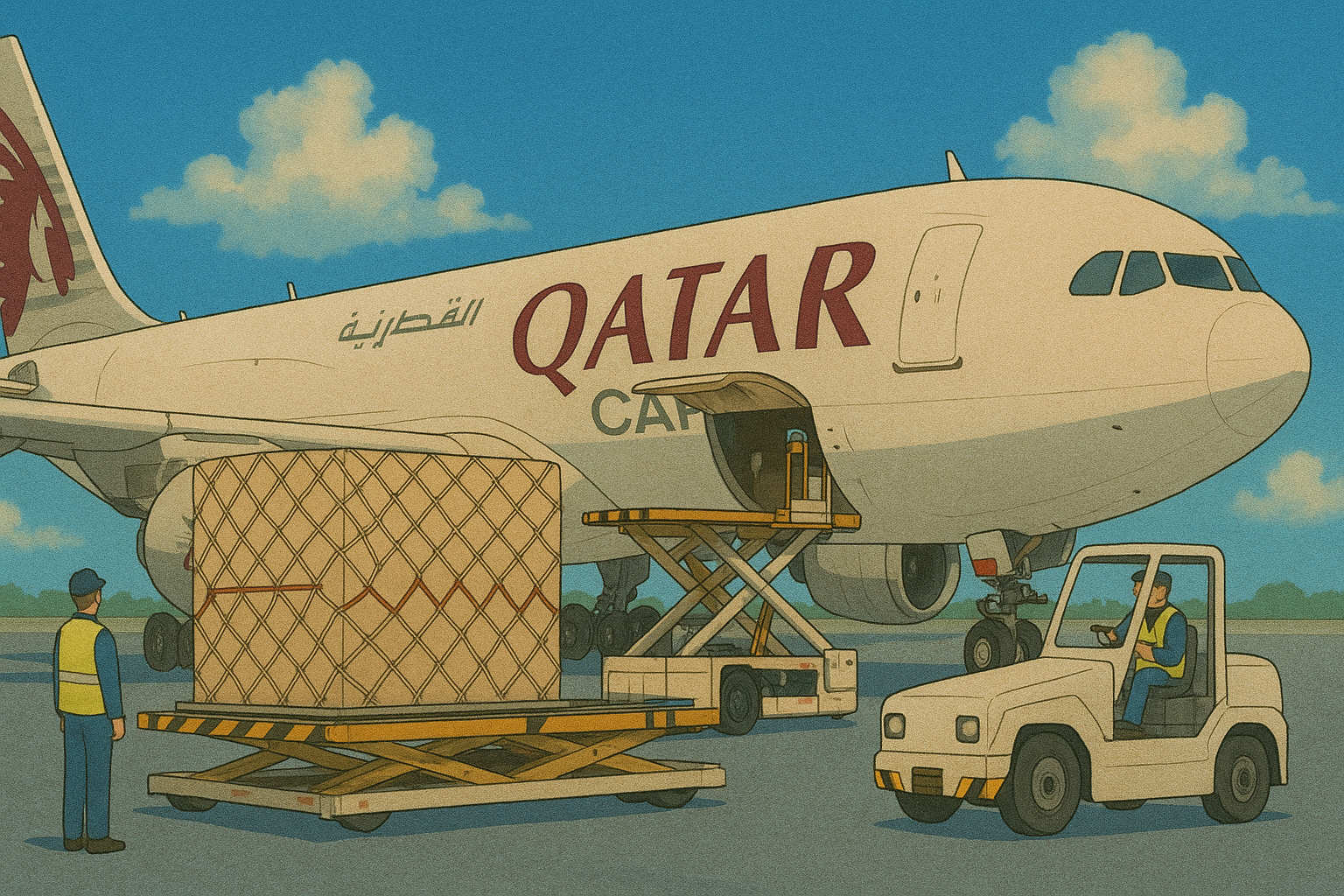Helping Qatar make informed decision for their midterm contracts
Overview
Qatar’s air cargo operations represent a critical component of global supply chain infrastructure, with the nation handling millions of metric tons annually through Qatar Airways Cargo. Making informed decisions for midterm contracts in this high-stakes environment requires sophisticated forecasting capabilities that can navigate volatile market dynamics and uncertain demand patterns. Our advanced time series forecasting approach provided Qatar with the analytical foundation needed to optimize contract negotiations, capacity planning, and revenue management across their extensive cargo network spanning Asia-Pacific, Middle East, Africa, and Europe.
Challenges Addressed
The primary challenge was forecasting demand at the origin-destination (O&D) level across Qatar’s vast cargo network, where contract decisions directly impact millions in revenue. Traditional forecasting methods struggled with the inherent volatility of air cargo markets, seasonal fluctuations, and external factors like geopolitical events and economic shifts. Qatar needed accurate predictions for midterm planning horizons to make confident commitments in contract negotiations while managing capacity constraints and operational costs. The high-stakes nature of these decisions meant that forecasting errors could result in significant financial losses or missed opportunities in an increasingly competitive market.
Technical Approach
We developed a comprehensive time series forecasting framework specifically designed for the air cargo industry’s unique characteristics. The approach incorporated multiple forecasting techniques including advanced machine learning models, ensemble methods, and domain-specific features that captured cargo market dynamics. Our methodology addressed the challenge of forecasting at granular O&D levels while accounting for network effects, seasonal patterns, and market volatility. The system integrated external data sources including economic indicators, trade flows, and industry-specific variables to enhance prediction accuracy. Real-time model updating capabilities ensured forecasts remained current with rapidly changing market conditions.
Impact
The forecasting system enabled Qatar to make data-driven decisions for their midterm contracts with significantly improved confidence levels. Accurate demand predictions at the O&D level allowed for optimized capacity allocation, more competitive contract pricing, and better risk management in volatile markets. The enhanced forecasting capability supported Qatar’s strategic positioning in global cargo alliances, including their planned joint venture with IAG Cargo and MASkargo launching in late 2025. The system’s insights directly contributed to revenue optimization and operational efficiency improvements across Qatar’s cargo network, providing a competitive advantage in contract negotiations and market positioning.
Technologies Used
The implementation leveraged state-of-the-art time series forecasting technologies including deep learning neural networks, ensemble modeling techniques, and automated feature engineering pipelines. The system incorporated real-time data processing capabilities to handle high-frequency cargo booking data, market intelligence feeds, and external economic indicators. Advanced statistical methods were combined with machine learning approaches to capture both linear and non-linear patterns in cargo demand. The technology stack included distributed computing frameworks for processing large-scale historical data and real-time inference engines for operational forecasting.
Our Team and Their Contributions
The forecasting team combined expertise in time series analysis, air cargo industry knowledge, and advanced analytics to deliver actionable insights for Qatar’s contract decision-making process. Team members contributed specialized skills in machine learning model development, cargo market analysis, statistical forecasting methods, and business intelligence visualization. The interdisciplinary approach ensured that technical sophistication was matched with practical industry understanding, enabling Qatar’s decision-makers to translate complex forecasting outputs into strategic contract decisions. Collaboration with Qatar’s commercial and operations teams ensured the forecasting system addressed real-world decision-making requirements while maintaining the highest standards of analytical rigor.
